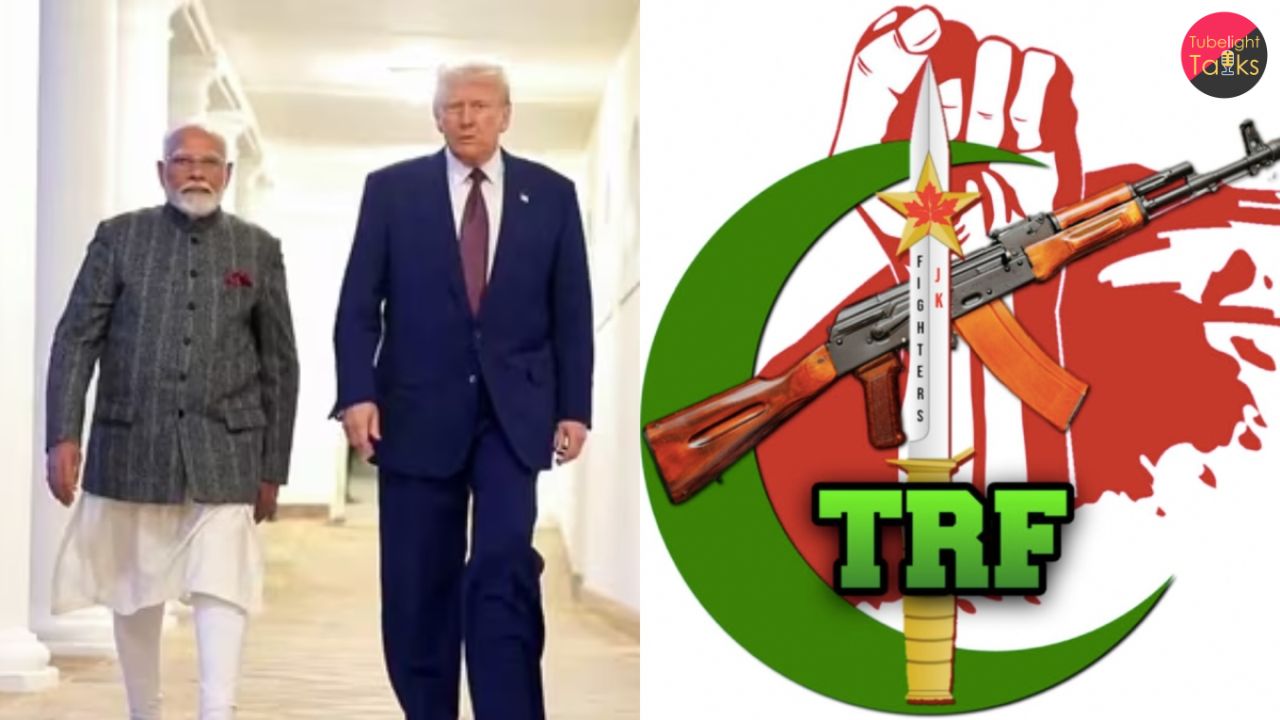India Applauds US Terror Listing of TRF in Major Diplomatic Victory
The Resistance Front, a Lashkar-e-Taiba proxy, designated a terrorist entity by the US; India calls it a milestone in counter-terrorism cooperation.
India’s Strong Reaction to TRF’s Designation
India welcomed the United States’ decision to classify The Resistance Front (TRF)—a proxy of Lashkar-e-Taiba—as a Foreign Terrorist Organization (FTO) and a Specially Designated Global Terrorist (SDGT).
External Affairs Minister S.
Jaishankar praised US Secretary of State Marco Rubio and the State Department for the move, labelling it a “strong affirmation of India-US counter-terrorism cooperation.”
The TRF had claimed responsibility for the horrific April 22 Pahalgam attack, which left 26 civilians dead, including one Nepali national. India maintained a firm stance post-attack, emphasizing its “zero tolerance” approach to terrorism. The MEA statement reaffirmed India’s commitment to working with international partners to hold terror proxies accountable.
The designation means TRF and its aliases will face sanctions under the Immigration and Nationality Act and Executive Order 13224. Washington’s move consolidates counter-terror efforts in South Asia and reflects diplomatic synergy with New Delhi.
The US Department of State, under Secretary Rubio, added TRF to its existing FTO and SDGT listings pursuant to Section 219 of the Immigration and Nationality Act and Executive Order 13224. These legal mechanisms empower the US to freeze assets, impose travel bans, and criminalize support for designated entities. The reaffirmation of Lashkar-e-Tayyiba’s terrorist status and inclusion of its proxy groups underscores Washington’s evolving anti-terror strategy in South Asia.
Diplomatic Ripples in South Asia
Following the Pahalgam attack, India downgraded diplomatic relations with Pakistan, suspended the Indus Waters Treaty of 1960, and revoked visa services for Pakistani citizens. These measures signaled India’s stern response against state-backed terrorism.
Pakistan retaliated by closing its airspace to Indian airlines and warning that any shift in water flows under the treaty would be considered an “act of war.” The escalation highlights how cross-border terrorism continues to strain Indo-Pak ties.
In a show of solidarity, US Secretary of Defense Pete Hegseth extended condolences to Defence Minister Rajnath Singh, reinforcing bilateral defense ties. India’s strategic response and global backing present a united front against extremist networks.
Legal Weight of US Action on TRF & LeT
The Department of State cited Section 219 of the Immigration and Nationality Act and Executive Order 13224 while adding TRF to LeT’s existing terror designations. These legal instruments empower the US to freeze assets, impose travel bans, and criminalize any form of support for TRF and LeT.
This decision reaffirms the continued designation of Lashkar-e-Taiba as an active threat. The US State Department highlighted the Trump administration’s dedication to protecting national interests and ensuring justice for the victims of the Pahalgam incident.
India’s cooperation with the US on intelligence and security has seen notable progress, and this development is expected to enhance joint efforts against transnational terrorism.
International Condemnation of the Pahalgam Attack
Global bodies reacted strongly to the Pahalgam tragedy, with the UN Security Council unanimously condemning the act. The attack at Baisaran—popularly known as ‘Mini Switzerland’—shook tourist confidence and underscored the vulnerability of civilians in conflict zones.
At the Shanghai Cooperation Organisation (SCO) meeting in Tianjin, EAM Jaishankar called for an uncompromising global stand against terrorism. His statement reflected the mood of a country determined to eliminate proxy militancy from its soil.
By aligning diplomatic sentiment with legal action, India and its partners are positioning themselves for robust counter-terror frameworks. This global censure builds moral legitimacy for India’s strategic responses.
Symbolism Behind Operation Sindoor
“Operation Sindoor,” launched after the Pahalgam attack, is not just an internal security maneuver but a statement of resolve. Sindoor, a symbolic mark of marital commitment and dignity in Indian culture, underscores the protective philosophy behind the operation.
The phrase—widely used by Jaishankar on social media—has gained traction and encapsulates India’s new counter-terror narrative. It signals unity, defense, and the uncompromising nature of the government’s approach toward terror threats.
Strategically, Operation Sindoor serves as a rallying point for domestic and international allies. It enforces India’s red lines and elevates the language of diplomacy to one of strong moral messaging and cultural resonance.











Discussion (0)